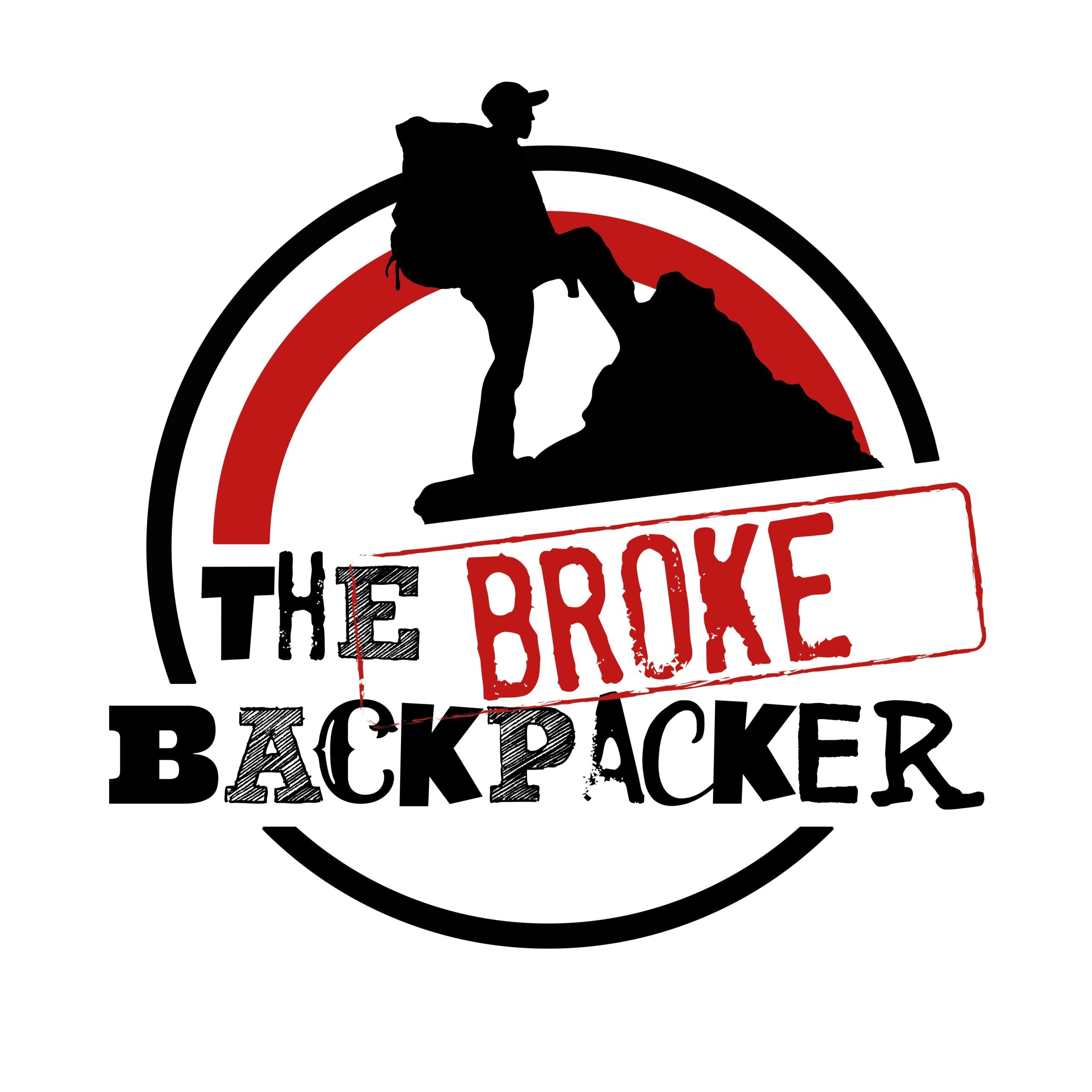You’ve been backpacking for months, scrimping on money by hitchhiking, eating at street stalls, and couch surfing as much as possible. You check your online banking and you’re on the last of your savings and the trip looks like it could be drawing to a close. You’re in need of food, fresh clothes, and getting your hands on something to sell for a little extra cash – but what is a hungry backpacker to do?
Well, the latest frugal backpacking trend could be for you. Get yourself some free food, clothes, furniture and more by heading out into your local area for a spot of dumpster diving.
Yep, diving into trash… well, not exactly.
Dumpsters once known as the graveyard for diapers, coffee grounds and all kinds of stinky garbage that I don’t even want to mention can also be your own personal treasure chest when at the end of the line finance wise.
All it takes is a little bit of (sometimes very messy) hard work, patience and time. To help you get started, let’s dive into exactly how to dumpster dive, along with some tips most beginners won’t know:
What is Dumpster Diving?
As the name suggests, dumpster diving is the trend of foraging for food or valuable items in dumpsters or trash. In many countries, dumpster diving has gone from a taboo to almost part of the mainstream culture, especially among travellers!
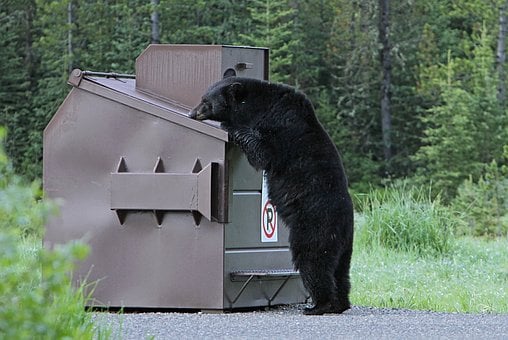
Whether you’re getting into it as a fun hobby or as a way to genuinely save a ton of cash, the bar to entry is low. Virutally anyone can get into dumpster diving.
Who Dumpster Divers Are
Anyone who wants to live a little more frugally – from backpackers, to students, to people simply living on a budget. Dumpster Diving is also very big for people who want to live a sustainable lifestyle. These people refer to it as urban foraging. Over one-third of the food thrown out in dumpsters is perfectly edible and it’s just sad that so much food goes to waste each year.
1.3 billion tons of food is wasted every year and ends up in landfills. This is a ridiculous dollar amount of wasted food! In the United States we throw away $165 billion worth of food each year! So many people these days who dumpster dive do it to save this food from being thrown away. If you’re backpacking the world on $10 a day, dumpster diving is a useful trick to save some cash. It’s also a useful way to combat food insecurity–you’ll truly be shocked when you see what people waste.
Becoming a pro dumpster diver, if you know where to look, can be very fruitful for someone hard up on cash – providing anything from a fresh meal to as-good-as-new clothes.
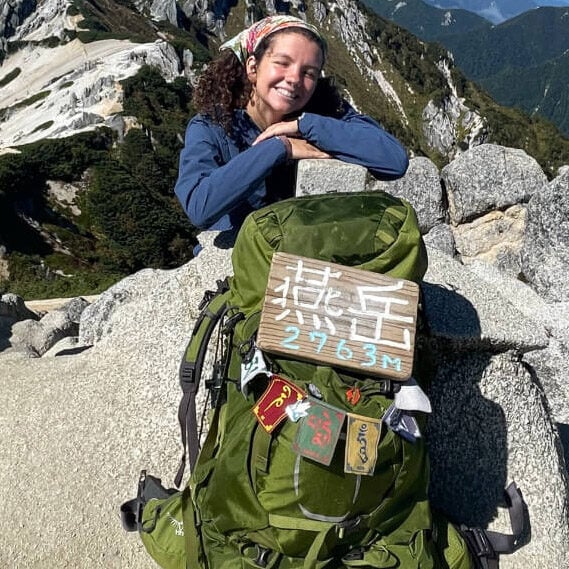
We’ve tested countless backpacks over the years, but there’s one that has always been the best and remains the best buy for adventurers: the broke backpacker-approved Osprey Aether and Ariel series.
Want more deetz on why these packs are so damn perfect? Then read our comprehensive review for the inside scoop!
View on Osprey View on REIHow to Dumpster Dive 101
Before you begin finding treasures in the trash, first, you need to know the laws on dumpster diving to make sure you don’t get in any trouble. Rubbish is not considered as private property, so you won’t be charged with theft if caught dumpster diving, but you should be careful of trespassing.
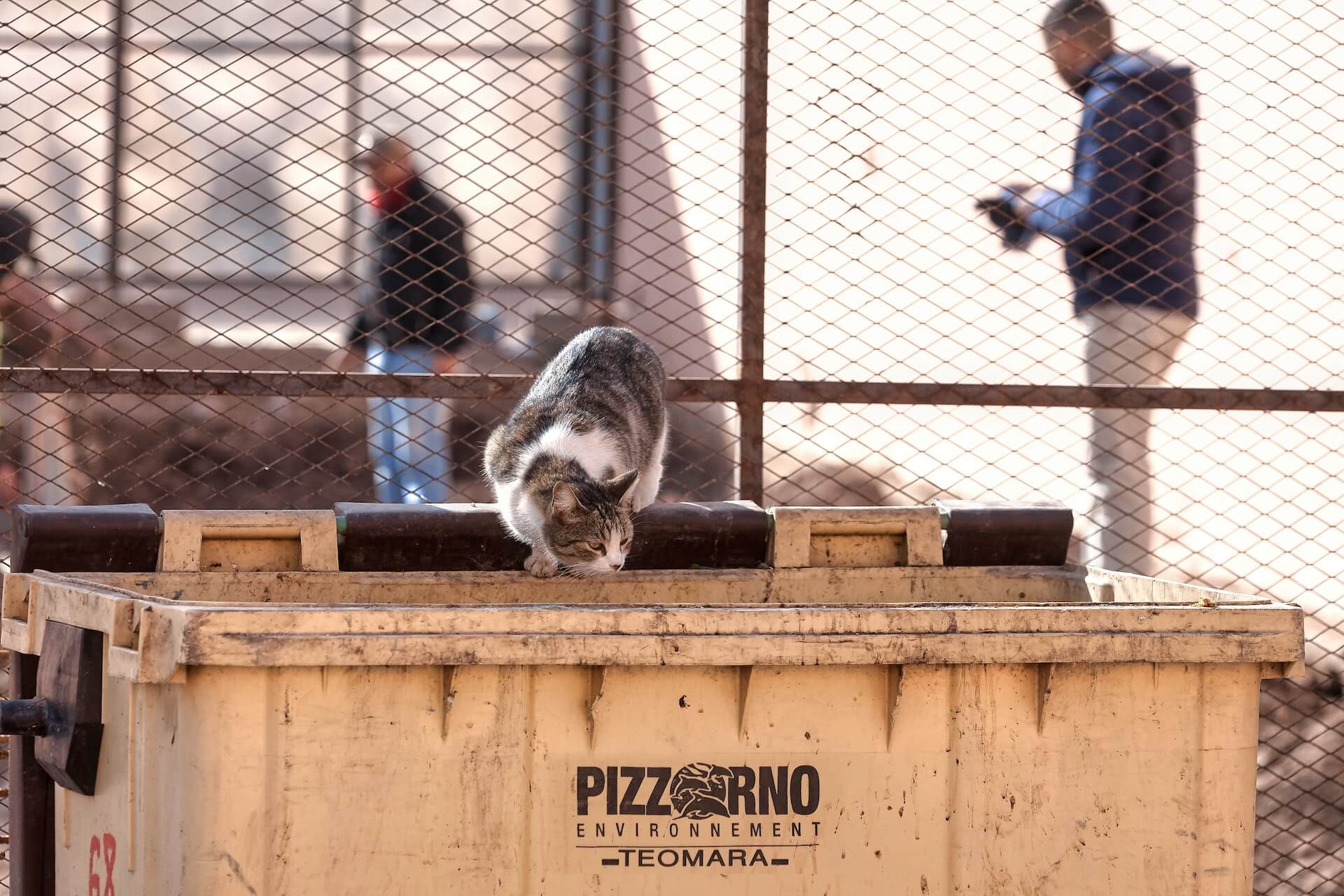
Trespassing and scavenging laws greatly differ depending on where you are, so do some research on your local area to inform yourself on the laws and what’s considered acceptable before setting out. Often, dumpster diving is a bit of a grey area where the law is concerned.
Don’t make yourself look suspicious and if you do encounter law enforcement, be respectful and follow their instructions – if they ask you to leave, then leave. Be aware also that some businesses enforce these rules and some don’t. Also–avoiding locked dumpsters should be basic common sense.
I recommended going dumpster diving early in the morning, right after sunrise. Fewer employees are around at these hours to interrupt and lots of grocery stores throw out their day-old foodstuff first thing in the morning. It’s easier to see than if you went crawling around in smelly garbage with a headlamp.
Best Places to Dumpster Dive
Here’s where to go to be able to replace grocery shopping with second-hand food finds…
Grocery Stores
Supermarkets throw out tons of perfectly edible food every day, just because the label says an item has exceeded its use-by date. Head to your local supermarkets’ dumpsters to scavenge fresh food waste for totally free – often you’ll be surprised by what you find.
Colleges
When students move out of their college dorms, they throw a huge amount of stuff out – from bedding to furniture. Check out college dorms just after students have moved out to bag yourself some free furniture that is almost always as good as new.
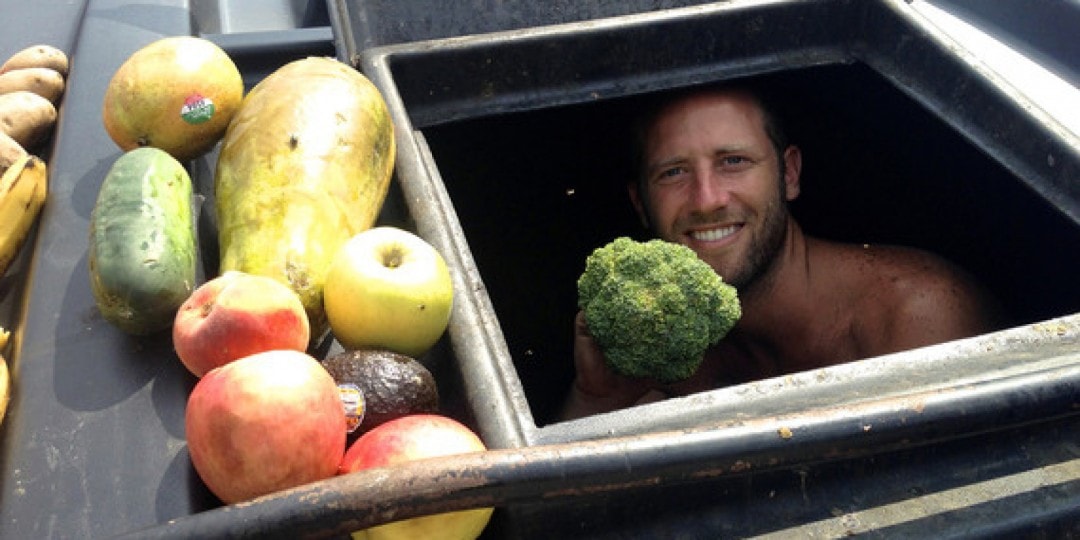
Look online
Once you start dumpster diving, you’ll discover there’s a community of other street scavengers who do the same thing and want to share their knowledge with you. Check out online forums for your local area for tips on the best places to go and when – just make sure you contribute information for others as well!
What Can You Find in A Dumpster?
Your dumpster dive hauls will vary depending on where you are and where you look, but some universally good stuff you could look out for include:
- Footwear
- Clothing
- TVs, DVD players, Speakers, Printers
- Cables
- Sealed food (never eat opened food found in a dumpster!)
- Furniture
- Decorations
- Wood/Lumber
Is Dumpster Diving Safe?
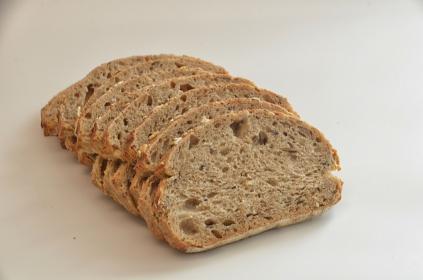
Be careful when dumpster diving! I recommend just going with foods that do not expire as this could be an easy way to pick up a stomach illness in a foreign land and lets face it, medical bills are expensive! If perishable products get over forty degrees you have a pretty good chance of picking up harmful bacteria and a case of the bathroom blues.
If what you are pulling out of the dumpster does not smell good, just leave it! It’s not worth the risk! Examples of safe foods to pull from dumpsters for consumption are canned goods, boxed cereals, slightly bruised fruits and breads. Good foods to avoid are seafood, sprouts, meat, dairy and unpasteurized juice.
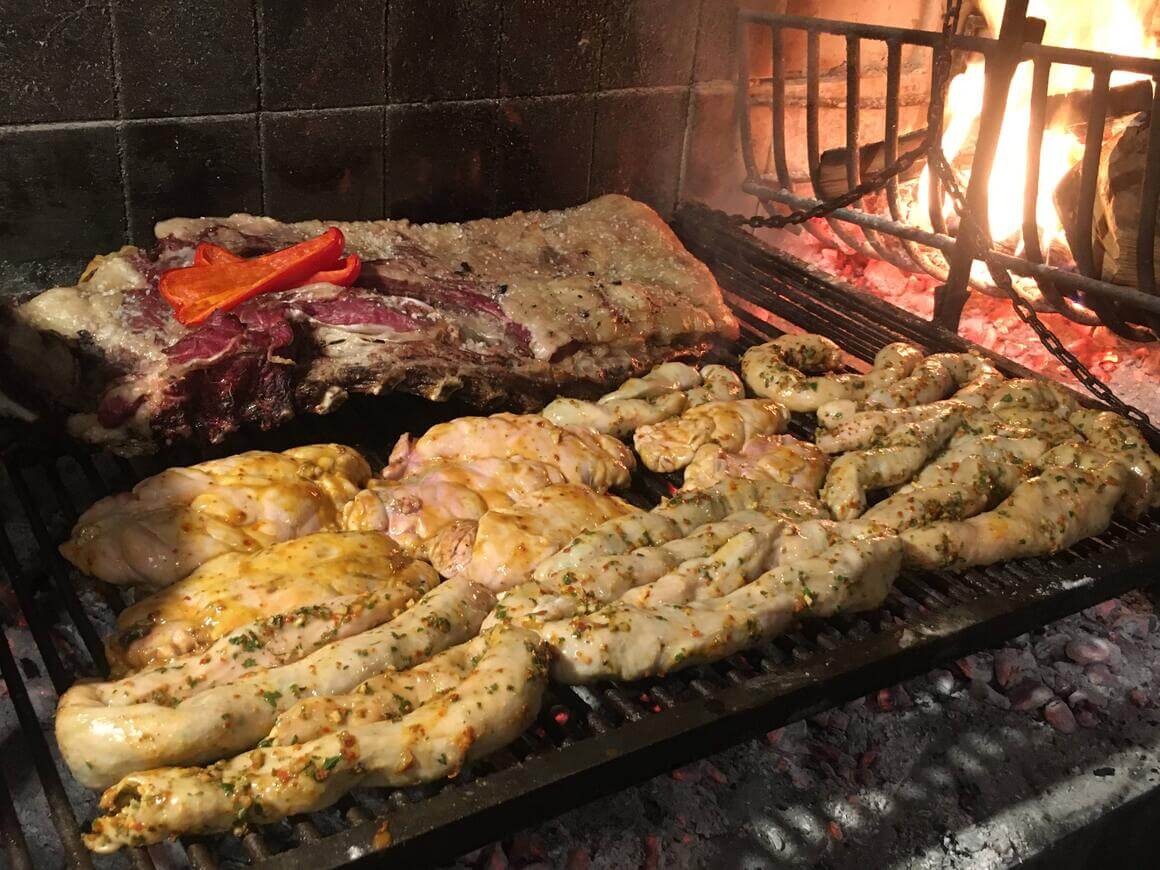
Photo: @Lauramcblonde
At the same time, I have friends who found perfect Thanksgiving free range turkeys from the Trader Joe’s dumpster in Santa Monica California the last two Thanksgivings! These same friends donated an entire carload of the food they scavenged to the tent city on Third Street in Santa Monica! What a fantastic way to use dumpster diving to spread the wealth!
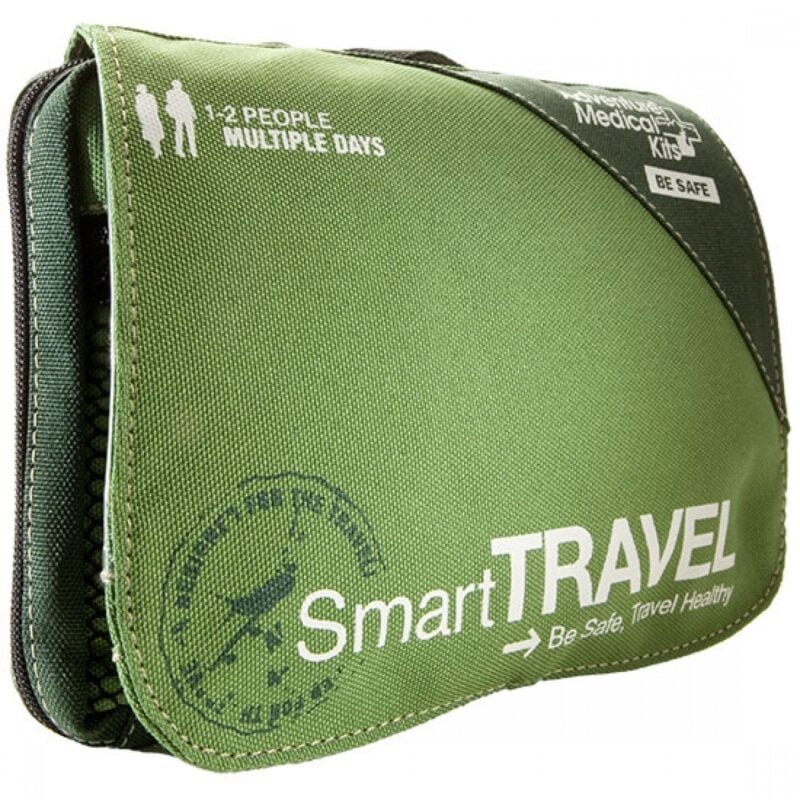
Things go wrong on the road ALL THE TIME. Be prepared for what life throws at you.
Buy an AMK Travel Medical Kit before you head out on your next adventure – don’t be daft!
Buy on REITips for Dumpster Diving
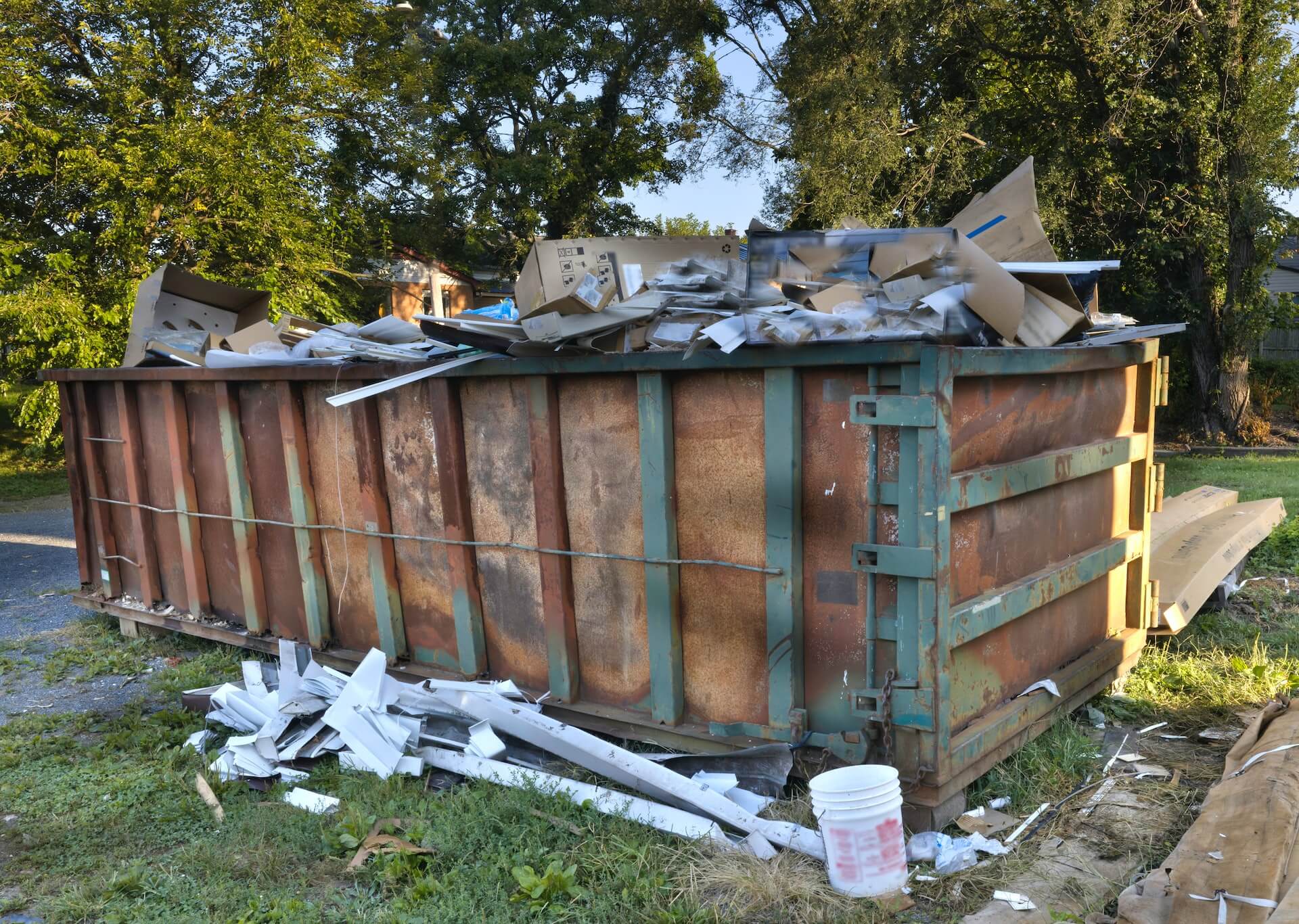
It can be hard to overcome the idea that dumpster diving is dirty and unhygienic – after all, many people throw out things for a reason! However, once you get over that mindset, you’ll discover how many items of real valuable can be scavenged after a bit of planning and research.
Follow these tips for happy dumpster diving:
Look for things that aren’t in dumpsters
If the idea of actually rooting through a dumpster doesn’t appeal, ease yourself in by scavenging items placed around the dumpster but not actually in them. This could include larger items of furniture, recyclables, and sometimes even crates of food around supermarkets.
Dress appropriately
Dumpster diving is not a fashion show. The best thing to wear for dumpster diving is an old pair of coveralls. For hygiene and safety reasons, you’ll need to wear at the very least long trousers and sleeves, and closed-toe footwear. No flip flops and definitely no heels! Wearing protective clothing (especially work gloves!) will help you stay safe while dumpster diving.
Wearing thick work gloves will protect you from cuts and dirt. Be live me there is some germ filthy things you don’t want to touch with your bare hands in dumpsters! (Among the treasuries that is!) If you rock up in shorts and flip flops, unprepared for a morning of dumpster treasure finding fun, you’re not going to have a great time!
Equip yourself
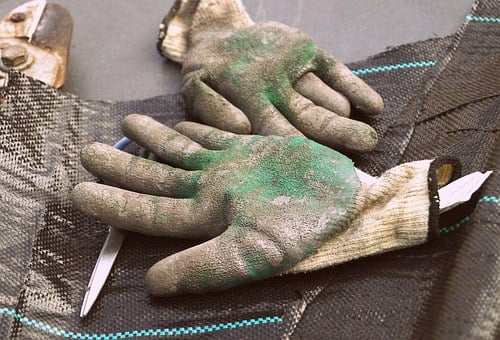
You can also bring useful equipment that will make scavenging that bit easier for you. Items you could bring include:
- Gloves– I recommend work gloves or if nothing else plastic gloves.
- A crate – For easier access to dumpsters or any hard to reach areas, a crate or stepping stool can be a great accessory to have. Not the most streamlined piece of dumpster diving equipment though!
- Plastic bags– Make sure you bring plastic bags with you to stash your finds as you go – if you forget, you’ll have to leave as soon as your hands are full.
- Head lamp – A good head lamp will be far more useful than a hand-held flashlight.
- Hand sanitizer – Do a favour to yourself and use this after a messy session at the dumpster.
- A knife – A knife or better yet, a multi-tool can be useful for slashing open trash bags or for dismantling equipment if you’re parts scavenging. Slip a folding knife or multi-tool in your bag before heading out and you never know when it might come in handy.
- Pliers/screwdriver – As with a knife, a few tools can come in handy if you’re scavenging for parts and don’t want to take the entire object home with you.
- Transport – In case you need to make a dash for it! It always helps to have an escape plan post- heist. Just kidding, but yes transport always helps.
- Fully charged cell phone – If that dumpster lid happens to close on you, have an exit plan! Make sure your phone is charged in case you have to call for help!
If you plan to have a full night of diving, having a form of transportation to get you and your finds home will come in useful! If you’ve got a bike it will do, but a car will provide you with more room and get you home faster.
Be aware
Dumpster diving can be dangerous – if someone’s thrown out something sharp and you handle it carelessly, you could end up getting seriously hurt. Make sure you handle everything with care and look out for any objects that could cause you harm such as broken glass, used needles, and sharp metal.
Clean up after yourself
After you’ve scavenged an area, be sure to clear up after yourself out of respect for your local area and the reputation of the scavenging community. That means putting any trash bags back in the dumpster, and ensuring you’ve left the area as you found it.
I used to work for a hugely popular UK-based grocery store and we constantly had dumpster divers making a giant mess! It was such a pain for employees to have to clean up the trash thrown everywhere and the mess left behind. This is why dumpster divers get a bad name–don’t be that person! Leave the dumpster as clean (Ha ha) as you found it.
Final Thoughts on How to Dumpster Dive
Hopefully you now have a much better idea on how to become a dumpster diver. Though it might sound crazy at first, you’ll soon realize how much free food (and other things) you’ve been missing out on all along.
Just be sure to do some solid research before hitting the bins–not everywhere is a good place to dive. Check out online forums too–it’s always easier to get started if you have a veteran to go with!
Happy diving!
P.S. Some people have found art, cash, Rolexes, and even god-damn gold in the trash… so keep an eye out!
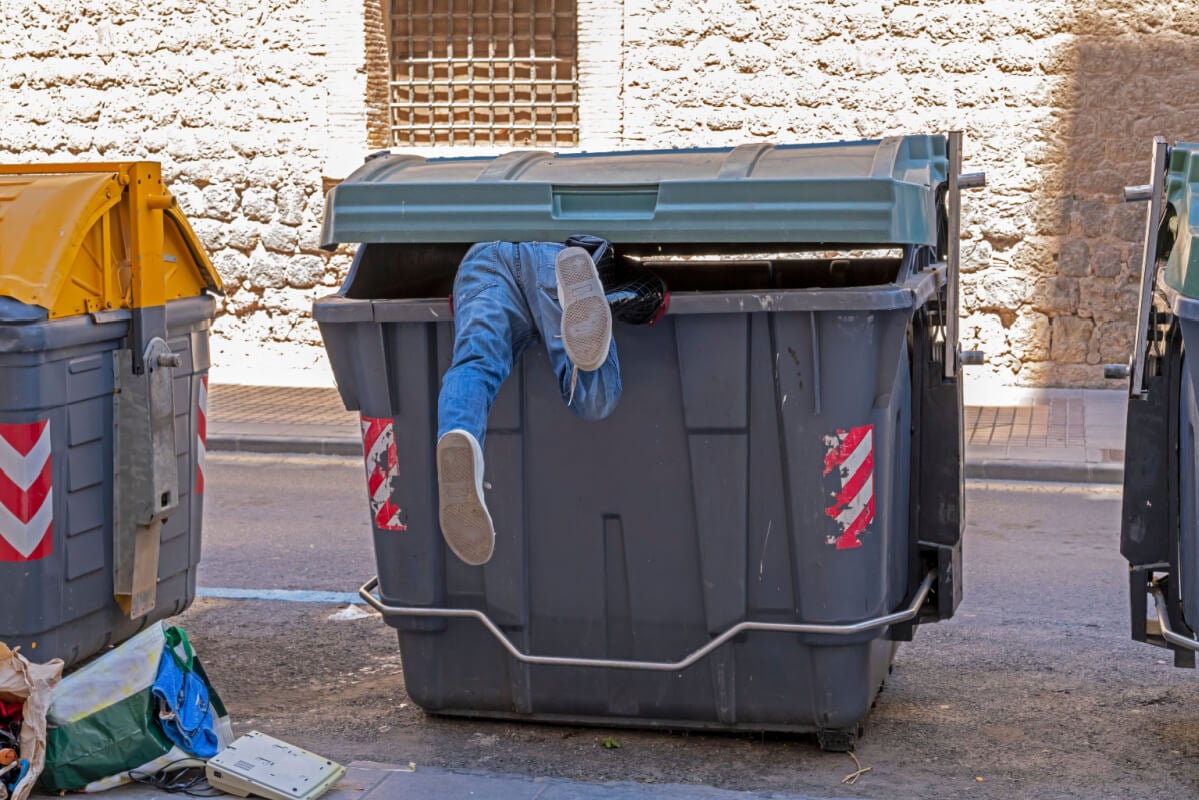
Updated February 2023

And for transparency’s sake, please know that some of the links in our content are affiliate links. That means that if you book your accommodation, buy your gear, or sort your insurance through our link, we earn a small commission (at no extra cost to you). That said, we only link to the gear we trust and never recommend services we don’t believe are up to scratch. Again, thank you!


